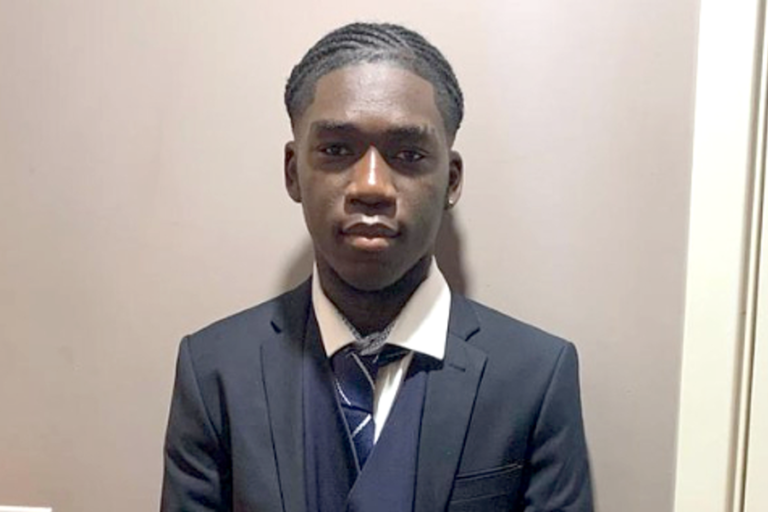Marcus Fakana, an 18-year-old from London, has surrendered to authorities in Dubai to begin serving his year-long prison sentence after being convicted in connection with a “holiday romance” with a 17-year-old girl. The British teen’s case has drawn significant attention, sparking debates about the differences in legal systems, the consequences of cultural misunderstandings, and the role of foreign governments in addressing legal disputes abroad.
Fakana’s arrest stems from an encounter during a family vacation in the United Arab Emirates (UAE), where he met the girl, who is now 18, also from London. The romance between the two teens went unnoticed by the girl’s family for some time. However, when the girl’s mother discovered intimate chats and pictures exchanged between the pair, she reported the matter to Dubai’s authorities, leading to Fakana’s arrest and charges.
With the support of a prominent campaign group, Detained In Dubai, the teen’s family has pushed for intervention by the British government, including urging UK Foreign Secretary David Lammy to help resolve the situation. The case is particularly sensitive because of the strict laws governing relationships, sex, and consent in Dubai. The UAE enforces a rigid legal framework, with the legal age of consent set at 18, and violations of this law can result in severe penalties.
After receiving legal advice, Fakana, who had initially planned to appeal his sentence, decided to surrender to the authorities. According to Radha Stirling, head of Detained In Dubai, Fakana made the difficult decision to begin his sentence in Dubai’s al Awir prison. Although Fakana is resigned to serving his sentence, he remains hopeful for a potential pardon from Dubai’s ruler, Mohammed bin Rashid al Maktoum, or intervention from the British government.
Stirling expressed her concern for the teenager, noting that the emotional and physical toll of serving time in Dubai’s prison system, especially for a young adult, could be significant. Fakana, despite his challenging circumstances, thanked his supporters and shared a message of gratitude and faith. “Nothing is hard with my Lord and Saviour Jesus Christ guiding me,” Fakana said in his message.
Fakana’s case has shed light on the complexities of navigating foreign legal systems, particularly for young travelers who may not be fully aware of the cultural norms and laws in the countries they visit. Although Fakana and the girl had kept their relationship hidden from her family due to their strict nature, it’s clear that this case highlights the importance of respecting local laws while traveling abroad.
UAE law dictates that minors under the age of 18 are legally classified as such, and any involvement with a minor in a romantic or sexual capacity is taken seriously by the authorities. The legal system in Dubai is known for its stringency, particularly regarding personal conduct, and is often seen as a challenge for foreign nationals unfamiliar with the cultural and legal landscape of the UAE.
The girl’s mother, acting as her legal guardian, filed the complaint, which led to legal proceedings against Fakana. UAE prosecutors emphasized that the case adhered to international legal standards, and the country’s justice system was committed to protecting the rights of all individuals, including foreigners who may be unaware of local laws.
For Fakana, the situation has escalated into a legal and diplomatic matter, with global scrutiny surrounding the UAE’s legal processes. His case has prompted discussions about the role of the British government and its diplomatic responsibility in cases involving British citizens abroad. While the UK Foreign Secretary David Lammy has expressed his support for Fakana, he also urged citizens to adhere to the rules of the countries they visit. The British government has stated that Fakana has received consular support, but there have been no indications of direct intervention in the case.
Fakana has also expressed his regret over the situation, noting that he never intended to break any laws and had hoped to continue his relationship with the girl back in the UK. However, his time in Dubai took a sharp turn when the police arrived at his family’s hotel and took him into custody without explaining at that moment.
The case has raised awareness about the legal systems in foreign countries and the need for travelers to educate themselves about the laws of the places they visit, especially when it comes to sensitive topics such as relationships, age of consent, and cultural expectations. The UAE’s laws on romantic relationships and personal conduct are well-known, but this case serves as a cautionary tale for young travelers who may not fully understand the potential consequences of their actions.
As Fakana begins his sentence, questions remain about how the case will influence both UK foreign policy and the relationship between the UAE and foreign nationals. Many are calling for clearer guidelines to help young travelers avoid finding themselves in similar situations. While the legal proceedings are ongoing, this case continues to spark discussions about the balance between respecting cultural laws and understanding the complexities of international law for young people traveling abroad.
In the meantime, Fakana’s supporters continue to hold out hope that either the Dubai authorities or the UK government may intervene to offer him a second chance. Whether or not this will happen remains uncertain, but one thing is clear: the case of Marcus Fakana serves as a stark reminder of the importance of respecting the laws and customs of foreign countries, particularly in the areas of personal conduct and the serious consequences that can arise when those boundaries are crossed.
As Fakana embarks on his prison sentence, the world watches closely to see how this case will unfold and what lessons it may offer to future travelers.

